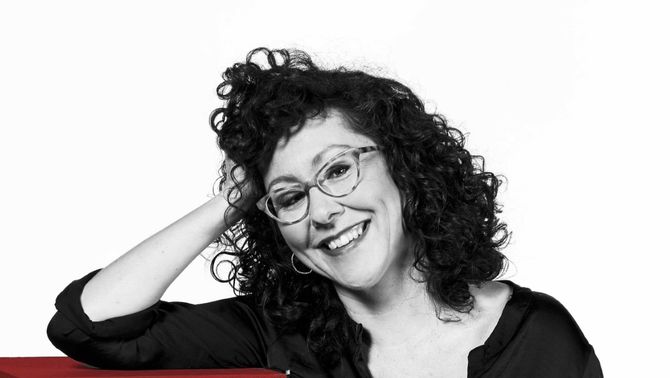June 16, 2021
Riane Eisler's The Chalice and The Blade, or El Cáliz y la Espada, has been reissued in Spain, thirty years after its first Spanish print edition. Catalan journalist, Montse Virgili, invited author, Riane Eisler, archaeologist, Alba Masclans, and co - author of the study about patrilocality, Marta Cintas-Peña, on her Catalunya Radio program Les dones i els dies (Women and the days). 
The episode dives into the following questions about prehistory:
"El programa d'aquest dissabte se centrarà en la prehistòria. La imatge de l'home de les cavernes estirant una dona pels cabells ha representat la prehistòria. I aquesta imatge ha marcat generacions i generacions. Es diu que encara som a Cromanyó per dir que no avancem, però com ens han explicat el paper de les dones a les civilitzacions més antigues? De veritat eren ells els caçadors i nosaltres les recol·lectores? Hi ha proves en aquest sentit? Els dibuixos de les cavernes estaven fets per homes, n'estem segurs? I les dones només esperaven fent bullir l'olla que els senyors tornessin de caçar?"
"This Saturday’s program will focus on prehistory. The image of the cave man pulling a woman by the hair has represented prehistory. And this image has marked generations and generations. It is said that we are still in Cromanyó to say that we are not advancing, but how have we been told the role of women in the earliest civilizations? Were they really the hunters and we the harvesters? Is there evidence to that effect? The drawings of the caves were made by men, are we sure? And did the women just wait for the pot to boil for the gentlemen to come back from hunting?"
Listen to Riane Eisler on Catalunya Radio program "Les dones i els dies" below:
Episode description:
"El cáliz y la espada", de Riane Eisler, es va publicar ara fa 30 anys als Estats Units i va suposar una revolució sobre el que s'havia explicat sempre sobre la prehistòria, per això aquest llibre continua tenint una vigència extraordinària. Parlem amb l'autora, des de casa seva, a Califòrnia. Durant la conversa ens explica que la prehistòria no és aquell lloc violent del qual ens havien parlat, que la manera d'explicar la història per part dels historiadors i arqueòlegs ha situat la dona "en una posició de desavantatge" i que tant homes com dones estem sotmesos a una estructura de dominació que no ens fa lliures.
El Cáliz y la Espada, by Riane Eisler, was published 30 years ago in the United States and was a revolution in what had always been told about prehistory, so this book continues to have extraordinary validity. We spoke with the author, from her home in California. During the conversation she tells us that prehistory is not the violent place we were told about, that the way historians and archaeologists have told history has placed women "at a disadvantage" and that as both men and women, we are subjected to a structure of domination that does not set us free."
See also: Covid-19 & Gender Inequality: The Differences Compared to Other Crises



Leave a Reply